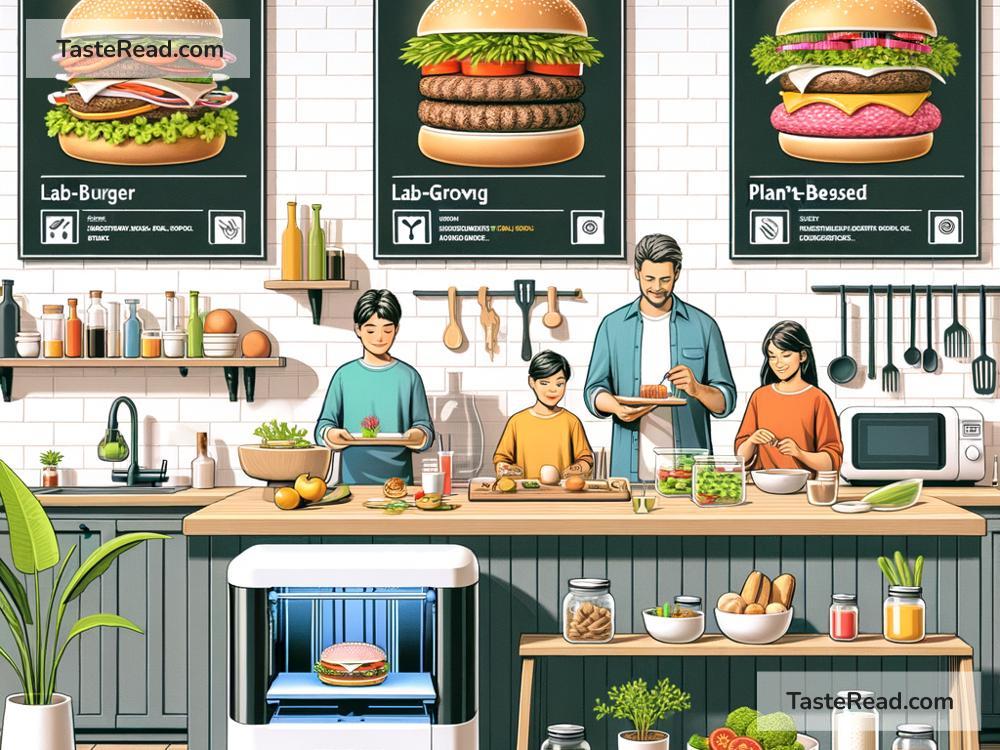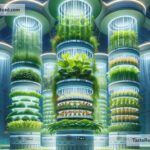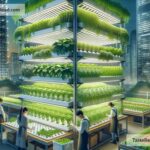The Future of Food and Economic Equity: A Path Toward Fairness and Sustainability
The future of food is one of the most important topics of our time. As the world grows and changes, people everywhere face challenges like hunger, climate change, and inequality. But there’s hope. With new technology, new ideas, and a focus on helping everyone, the future of food can lead to a fairer and healthier world.
Challenges in Food Today
Today, millions of people do not have enough food to eat. Hunger is a big problem, especially in poorer countries. At the same time, in many richer countries, people waste tons of food every year. This mismatch shows inequality: some people have more food than they need, while others don’t have enough.
Climate change is another challenge. Rising temperatures, unpredictable weather, and natural disasters all affect how food is grown. Crops fail, rivers dry up, and farmers struggle to make a living. As the planet changes, we need to think about how we grow food in ways that protect the environment.
Economic inequality also plays a big role in food systems. When food is expensive, or land is unevenly owned, poor communities are left out. Wealthier individuals and companies often benefit, while smaller farmers and everyday people suffer. For everyone to eat well, we must fix these uneven systems and make food affordable for all.
The Future of Food: Innovations and Ideas
In the future, we can imagine a food system that is fair, sustainable, and inclusive. Here are a few exciting ideas shaping the way food will look:
-
Technology in Farming
Farmers are now using advanced tools like drones, sensors, and artificial intelligence (AI) to grow food more efficiently. For example, sensors can monitor soil moisture to tell farmers when to water their crops, saving water and energy. Vertical farming, which grows food indoors in stacked layers, makes it possible to grow crops in cities and areas where land is limited. Technology can help farmers grow more food while using fewer resources, which means less harm to the environment. -
Lab-Grown Food
Lab-grown meat and dairy are becoming more popular. Scientists are developing ways to create food without raising animals, requiring less land, water, and energy. This process could make food production faster and cheaper while reducing greenhouse gas emissions. It also opens the door to ethical eating choices for people concerned about animal welfare. -
Plant-Based Diets
More people are choosing plant-based foods, which are often better for the environment. Growing plants like grains, beans, and vegetables requires fewer resources than raising animals. By shifting diets toward more plant-based options, we can reduce environmental damage and feed more people on the planet. -
Local and Community Food Systems
Local farming and community-supported agriculture (CSA) programs are helping reconnect people to where their food comes from. These systems reduce the need for shipping food over long distances, cutting carbon emissions. They also empower small farmers and boost local economies. -
Resilient Crops
Scientists are creating new types of crops that can withstand extreme weather. These resilient plants can grow in dry conditions, survive floods, or thrive in colder climates. Innovations like this ensure that food production continues even as climate challenges worsen.
What About Economic Equity?
Economic equity means fairness when it comes to resources, opportunities, and systems. In terms of food, economic equity is about making sure all people have access to healthy meals, no matter where they live or how much money they have. The future of food must work hand in hand with economic equity to create a better system for everyone. Here’s how:
-
Affordable Food
Governments and communities can work together to make food prices fairer. Subsidizing healthy, sustainably grown food can ensure families can afford nutritious meals. At the same time, we can reduce subsidies for big companies that prioritize profits over people and the planet. -
Access to Land
Farmers need land to grow food, but land ownership is often unequal. Programs that help small farmers gain access to land can give communities more control over their food. Supporting women farmers, indigenous groups, and minority farmers is especially important for creating economic equity. -
Fair Wages
Workers in farming and food production often earn very little money, even though they play a key role in feeding the world. Advocating for fair wages, safe working conditions, and labor rights can improve the lives of millions of workers in the food industry. -
Education and Innovation
Teaching people about farming, cooking, and food sustainability can create opportunities for economic growth. Communities can learn to grow their own food, start local businesses, and develop skills that empower them to thrive. Supporting education, especially in agriculture and entrepreneurship, can help fight poverty.
A Vision for the Future
The future of food is not just about what we eat—it’s about creating a fair and sustainable world. We have the tools, creativity, and passion to solve hunger, reduce environmental harm, and build economic equity. By working together, governments, scientists, businesses, and everyday people can create systems where everyone has access to healthy, affordable food.
Imagine a world where farmers earn fair wages, where children never have to go to bed hungry, and where the planet’s health is protected. This vision is possible, but it requires teamwork and commitment. The future of food depends on all of us—not just inventing new technologies but also ensuring fairness and kindness for everyone. Let’s plant the seeds of change today!


